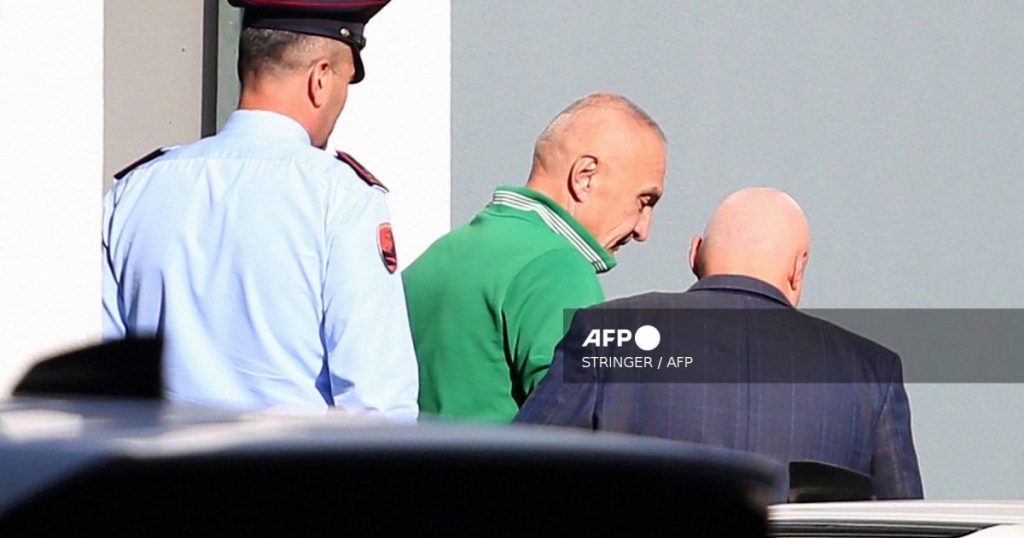Ilir Meta, a prominent figure in Albanian politics and former president from 2017 to 2022, was arrested in Tirana on allegations of corruption and money laundering. His detention, confirmed by the special prosecutor’s office, has sparked significant backlash from his political party, which characterized the arrest as a “criminal kidnapping.” Meta’s political trajectory has seen him transform from an ally of Prime Minister Edi Rama to one of his most vocal adversaries, with the current charges linked to both his past as Minister of Economy and his present activities. Following his arrest, Meta’s ex-wife, Monika Kryemadhi, was not detained but is expected to frequently report to judicial authorities, underscoring the interconnected nature of their political and legal battles.
The allegations against Meta consist of various offenses, including passive bribery of a senior official, money laundering, and false asset declaration—actions that could lead to severe penalties under Albanian law, up to 12 years in prison. The oldest accusations trace back to his tenure as Minister of Economy in 2010-2011. Meta’s legal troubles seem to reflect a broader theme in Albanian politics, where accusations of corruption often surface amidst political rivalry. The investigation into Meta’s activities has gained international attention, with the prosecutor’s office noting that support has come from countries such as the United States, Austria, Italy, San Marino, and Cyprus, emphasizing the potentially far-reaching implications of the case.
Images circulated by Albanian media captured the moment of Meta’s arrest, revealing a dramatic scene where he was escorted by police into a special forces van, culminating in his transfer to a police station and subsequently to jail. Such vivid portrayals highlight the gravity of his situation and signify a crucial episode in Albania’s ongoing struggle against political corruption. Meta’s political trajectory has been marked by high-stakes maneuvers, including various alliances and disputes with key figures, chiefly Prime Minister Edi Rama, whose administration Meta accuses of advancing a “kleptocratic regime.”
In the wake of Meta’s arrest, numerous political leaders have rallied to his defense, asserting that the charges are politically motivated. Tedi Blushi, the secretary-general of Meta’s political party, vociferously denounced the actions taken against him, framing them as unjust persecution rather than genuine legal accountability. Former Prime Minister Sali Berisha, the current leader of the opposition Democratic Party and himself facing scrutiny under house arrest, echoed similar sentiments, emphasizing that Meta’s arrest is part of a broader political vendetta orchestrated by Rama’s government. This environment of deepening political rivalry suggests that the allegations might serve more as tools in a fierce political contest rather than as isolated legal challenges.
Meta’s career has spanned three decades, marking him as a veteran politician with considerable influence in Albania since the fall of communism in 1991. His numerous roles include serving as Deputy, Prime Minister, Minister of Foreign Affairs, and Speaker of Parliament before ultimately becoming President. This extensive experience has provided Meta with both political capital and connections, complicating the current situation as both friends and foes navigate the implications of his arrest. Notably, he has transitioned from being an ally of the current administration to aligned with the opposition, drawing heavy criticism against Rama’s consolidation of power across legislative, administrative, and judicial branches.
As Meta’s legal journey unfolds, it poses essential questions concerning the integrity of Albania’s political system, citizens’ perceptions of justice, and the implications for future governance. The case encapsulates a broader narrative of corruption and power struggles that permeate Albanian politics, reflecting the contentious relationship between political players and the institutions purportedly dedicated to upholding the law. As attention focuses on this unfolding drama, it remains to be seen how the saga will influence public sentiment, shape political alliances, and what it might mean for the rule of law in Albania as allegations of corruption continue to dominate the discourse.














